The Bunim/Murray president on Buddy Games and why the time is right for a great new format to blow up on the global market
“Everybody still wants franchises. And there’s a moment in time now where new ones have an opportunity to be born. The good ones are really going to blow up.”
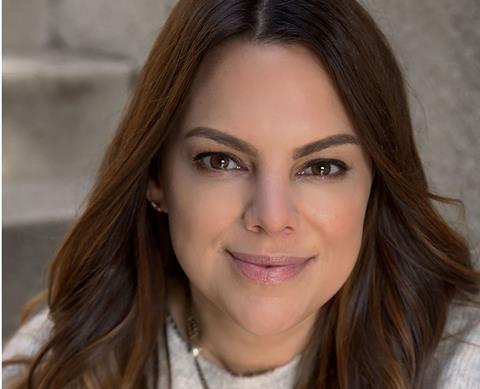
Julie Pizzi is unpacking the evolution of the unscripted market. In an ultra-competitive landscape, the Bunim/Murray Productions president says, channels and platforms are homing in on a strategy to create distinctive unscripted worlds that are instantly recognisable to audiences as part of their brand.
“People aren’t buying as many little shows as they have been in the past,” she says. “Recently there’s been a real investment in those sorts of supernova formats that people look at and say, ‘This can be a franchise. We can do this for 20 seasons because we have a great piece of talent as the lead or a great concept’.”
Bunim/Murray knows a thing or two about unscripted TV. The Banijay-owned company is more than 35 years old and is behind some of the most consistent formats in the world, including MTV adventure competition franchise The Challenge and its many spin-offs; groundbreaking reality series The Real World; talent-fronted docusoaps The Simple Life, Keeping Up With The Kardashians, Ball In The Family and The Family Stallone; and recent titles such as I Survived Bear Grylls.
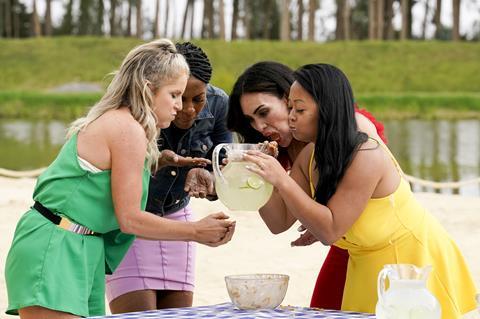
Still, Pizzi seems surprised that the new shows Bunim/Murray is developing are “a little bigger in scale” – a sign perhaps that even established labels are finding it tough to get a show away.
“We have taken out far more formats than we’ve sold. But what we’ve found is that with [failed] formats, we’re getting an inch closer because now we know what [broadcasters] want,” she says.
“There was a time when you could order something that would just fill a time slot. Now everyone wants marquee shows”
“We have been able to sell a couple of big, exciting formats this year, but we haven’t sold as many little shows. In this moment, networks, cable channels and platforms aren’t trying to simply fill the airwaves.
“There was a time when you could order something that would just fill a time slot and was a good show. Now, I feel they want marquee shows.”
Conventional thought suggests Pizzi is correct, but within an industry framework where commissioning decisions can be guided by financial constraints and a (sometimes uncompromising) demand for instant hits.
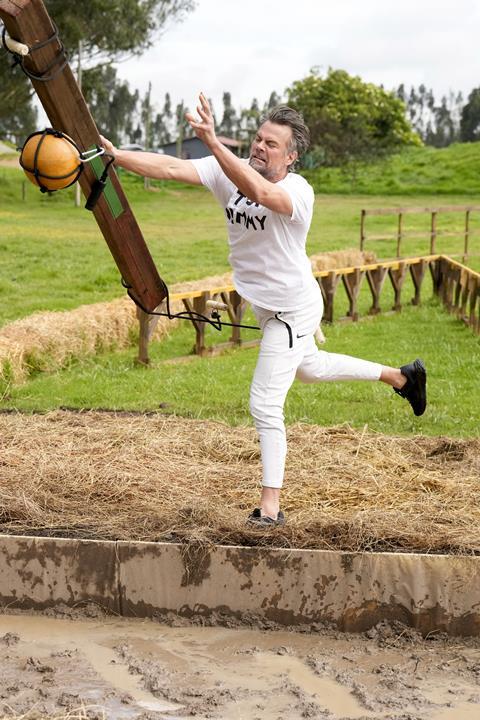
Shows that currently tend to make it through the gatekeepers are established global brands such as Survivor or Big Brother, or original ideas that punched through before the economic headwinds began buffeting the industry, such as Netflix’s The Circle or Too Hot To Handle.
But while launching new formats can unnerve risk-averse buyers, Pizzi says they can be tempted, pointing to recent breakout performances by The Traitors or Love Is Blind. The latter launched its fifth series on 22 September quickly after a triumphant fourth run that made both Netflix’s internal global top 10 rankings and audience measurement giant Nielsen’s streaming charts.
“There are going to be a lot of daring new shows that might not make it,” Pizzi says. “But there’s a real desire to have franchises that belong to NBC Universal or Paramount or Netflix, in which these companies can really invest.”
Bunim/Murray aims to achieve this with Buddy Games, its latest commission for broadcast network CBS. On the one hand, the Josh Duhamel-fronted gameshow has high-profile talent attached and is inspired by existing IP – a film directed by and starring the Transformers actor.
On the other, it could be construed as risky for the Paramount broadcaster: a brand-new format with no benchmark, coming to a channel that already boasts unscripted mainstays Survivor, Big Brother and The Amazing Race.
Even Bunim/Murray’s other CBS show, The Challenge: USA, features an amalgam of stars from the aforementioned CBS formats.
Unscripted focus
Buddy Games leads an unscripted autumn line-up, having launched in a primetime 9pm slot on 14 September, sandwiched between Big Brother and The Challenge: USA.
With the ongoing writers’ strike starving US broadcast networks of access to new scripted titles, CBS and other networks are putting a lot of weight behind their unscripted debutants, upping the ante for them to perform. Does needing to satisfy the particularities of a CBS audience add pressure?
“We all felt the show was on-brand for CBS,” Pizzi says. “But also, if you look at it from another angle, CBS has kept Big Brother, Survivor and The Amazing Race for a long time, so it has had incredible success in building these franchises.”
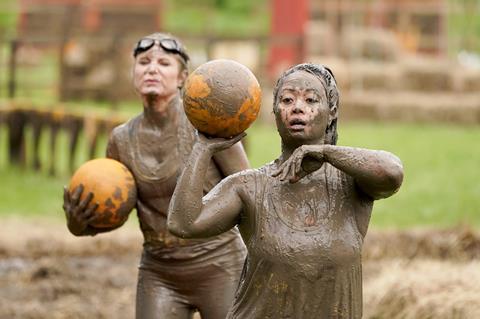
Pizzi talks up the tonal differences between Buddy Games and its established peers, noting that it “isn’t as serious, so doesn’t feel like it competes with what CBS already has”, with “36 strangers joining a show to win some money”.
“It is a little more frivolous. It’s a little bit more nostalgic. It really feels like something for everyone,” she adds. “It has some comedic elements, but at the core of it is friendship. It’s teams of four best friends, people who know each other deeply. They come in with that trust, that camaraderie.”
Buddy Games is a departure for Bunim/Murray, Pizzi adds, despite its track record in the competition format arena, because it has “a lot of joy, which we don’t see a lot in competition shows”.
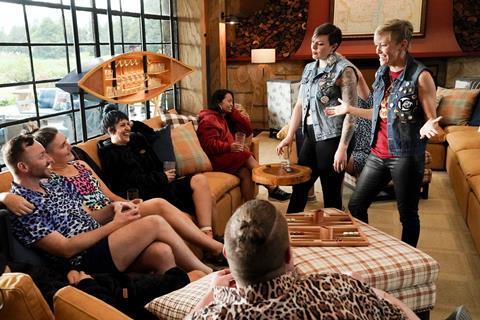
In aiming to make a relatable show, it was important to ensure the games were “a step above what you could build at home, but not too sophisticated”, she notes.
The show doesn’t look inexpensive, however, and the rural lodge and its surroundings, which make up the competition arena, are actually a repurposed flower farm outside of Bogotá, Colombia – though you’re supposed to think it’s the US countryside.
Buddy Games is intended to be eminently formattable, and will sit alongside Banijay’s catalogue of flagship global unscripted brands: Survivor, Big Brother, MasterChef and The Bridge.
Competitive edge
Buddy Games offers an insight into the kind of scale Pizzi believes buyers are looking at when it comes to tentpole formats. It is no surprise to her that adventure competition is currently enjoying a prolonged purple patch.
“There’s a believability when you have a competition format because you can’t fake people competing,” she says. “You might be able to fake your affection for somebody in a dating format, and you can be as verbose as you want in a competition, but you’re measured on how you perform. It takes the bullshit out of it.”
“The audience has such a keen eye now in unscripted. They can see when things feel canned or produced or unbelievable”
Pizzi is adamant that the hand of the producer was never too close to the action on Buddy Games, outside of to-camera interviews in between challenges. “It’s the way I learned from [founders] Mary-Ellis [Bunim] and Jonathan [Murray]. It was always: ‘Back off, they shouldn’t know your name, they shouldn’t talk to you.’ You were a real fly on the wall,” she says.
“In docusoaps, where there are no financial stakes or competition, there’s often a heavier hand, but in our competition shows, we really don’t have to.
“The audience has such a keen eye now in unscripted. They can see when things feel canned or produced or unbelievable.
“The best moments in reality television could never have been predicted or produced because they’re a complexity of human nature coming out in a way that makes you think, ‘Oh God, did that happen?”
JULIE PIZZI ON OWNING THE FORMAT
Julie Pizzi says the dial is slowly shifting towards a more equitable rights ownership landscape for US unscripted producers, something which for her remains one of the main issues in the market.
“On my wish list is that we would have more of an opportunity to have more ownership in the formats that we create,” she says. “The pendulum swings back and forth at various times, but there have been times where we’ve literally put a lot of money into developing a project, shooting it and pitching it and then developing it some more. Then when we finally get to sell it, we don’t really own it.
“We create shows with partners at networks and there is a lot of collaboration, so it’s not a one-way street and sometimes we do own our shows, but it isn’t the standard.
“In an ideal world, it would be amazing if unscripted executives had as much ownership in the content they create as with other genres – and certainly in other countries.”
Pizzi says increasingly there are conversations around creative ideas and rights. “There’s a real sense of collaboration. I don’t think we’re going to own every single show we create, but there’s more of an opportunity.”

























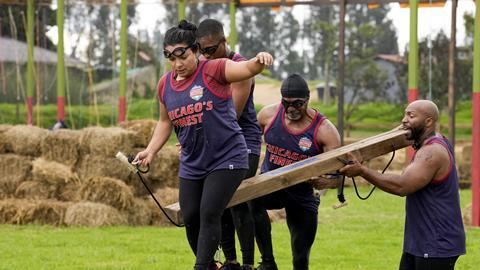






No comments yet